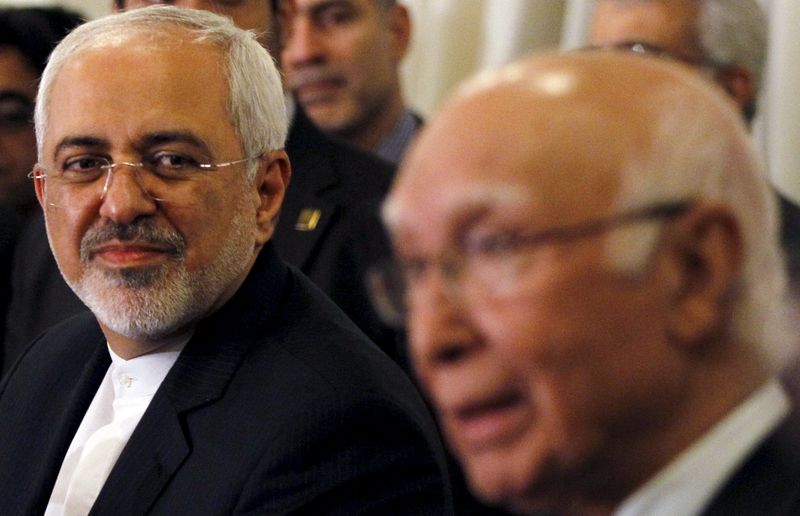MADRID (Reuters) - Iran's foreign minister laid out a four-point Yemen peace plan on Tuesday including dialogue and humanitarian aid, and renewed his call for an end to Saudi-led air strikes against the Houthi rebel force allied to Tehran.
The proposal is likely to anger Saudi Arabia and other powers which accuse Iran of arming the Houthis and interfering in Yemeni affairs. Tehran denies giving military support to the Houthis.
President Abd-Rabbu Mansour Hadi fled to Riyadh last month as the rebels advanced towards the southern Yemeni port city of Aden, triggering a campaign of air strikes by a coalition led by Saudi Arabia to try to drive them back.
Iranian Foreign Minister Mohammad Javad Zarif proposed a ceasefire, humanitarian assistance, an intra-Yemeni dialogue, and a broad-based government to end the conflict.
"This issue should be resolved by the Yemenis... Iran and Saudi Arabia need to talk but we cannot talk to determine the future of Yemen," he said at a conference in Madrid.
Zarif also said the air strikes "are simply not the answer... All operations should end on land and from the air."
On Monday, Zarif called for a new government in Yemen and offered to assist in a political transition. He also suggested that the process to rebuild Afghanistan after the 2001 U.S. invasion could serve as a model.
